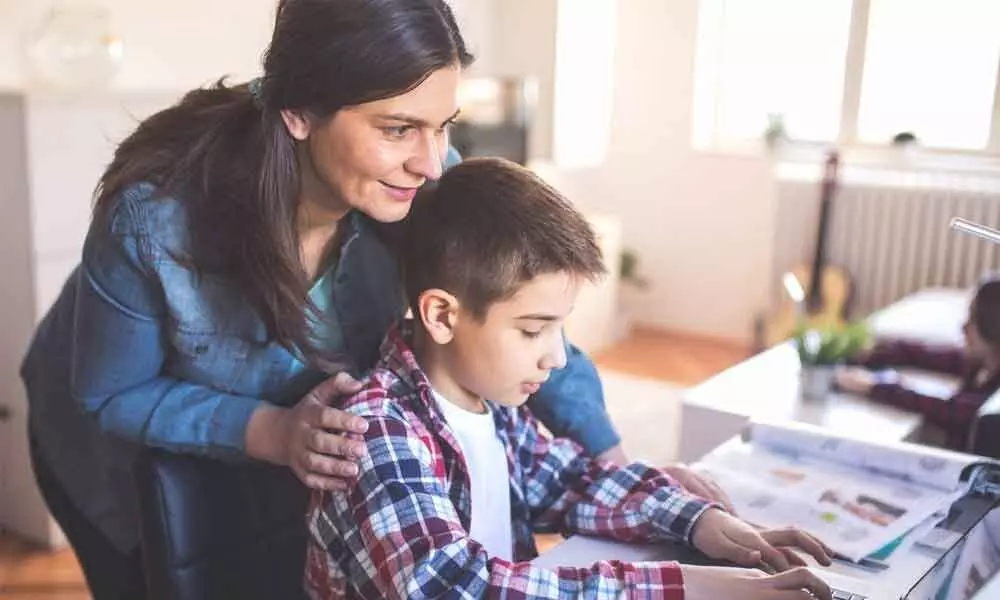How to deal with your child's online classes
 How to deal with your child’s online classes
How to deal with your child’s online classesUsually, by this time of the year, most of us have fastidiously sorted how we would be spending the two months of summer break with kids and family
Usually, by this time of the year, most of us have fastidiously sorted how we would be spending the two months of summer break with kids and family.
If you're privileged enough, your travel plans would have been booked beforehand and for the remainder of it, the kids would've been enrolled for at least a few weeks of summer classes.
Despite the challenges presented by COVID-19, many educators and students have the ability to take their learning temporarily online.
While the mode of communication and connection is different, teachers and students are making the most of their time away from the physical classroom.
Here are some tips for parents who have children participating in online classes:
Help your child establish and stick to a routine
Even though school has gone to an online learning format, treat school days just like you would if your child was attending school as usual.
This includes having them get up at the same time every day, get properly dressed, and eat a healthy breakfast.
Check in with your child's advisor or teachers
Teachers and advisors are usually more than willing to connect with parents via email or phone after school hours. Check in if your child is having difficulty managing the online learning platform or staying on task.
Be on the lookout for any communications from teachers indicating that they are having trouble connecting with your child during this time.
Encourage physical activity and exercise
Your child will be sitting in front of their computer for long stretches of time. Encourage them to use the breaks in the day to stretch, walk the dog, or do jumping jacks — any movement helps!
Resist the urge to sit in on classes with your child
While it may certainly be tempting to "pop in" on your child's classes, please respect their privacy and that of other students.
Connect with faculty and staff through email or other communication channels before or after school hours.
Make space for learning
Many adults have a specific area of the home in which they do work, and it's important that you create a similar space for your child.
Your children will achieve their best work in a quiet, comfortable, and dedicated space that is strictly devoted to learning. This space should be a different set-up than where they normally play games or watch television.
Maintain breaks such as snack time and recess
Routines and schedules are extremely important for children at school, and this is no different in their at-home school.
Children will function best if they maintain their routine as close to normal as possible.
Setting alarms similar to those they would encounter at school can be helpful for keeping them on a schedule.
Around lunch time, encourage them to get up, get some fresh air, go for a walk or bike ride, or have a snack so that they are not sedentary for the entire day.
Take care of you
This one is extra important, and we hear it often, but take care of you.
If you're not taking care of your own physical, emotional, mental, and spiritual needs, you will have less energy, space, and patience to connect with and take care of your children.
Even 10-15 minutes of scheduled "me" time during the day .

